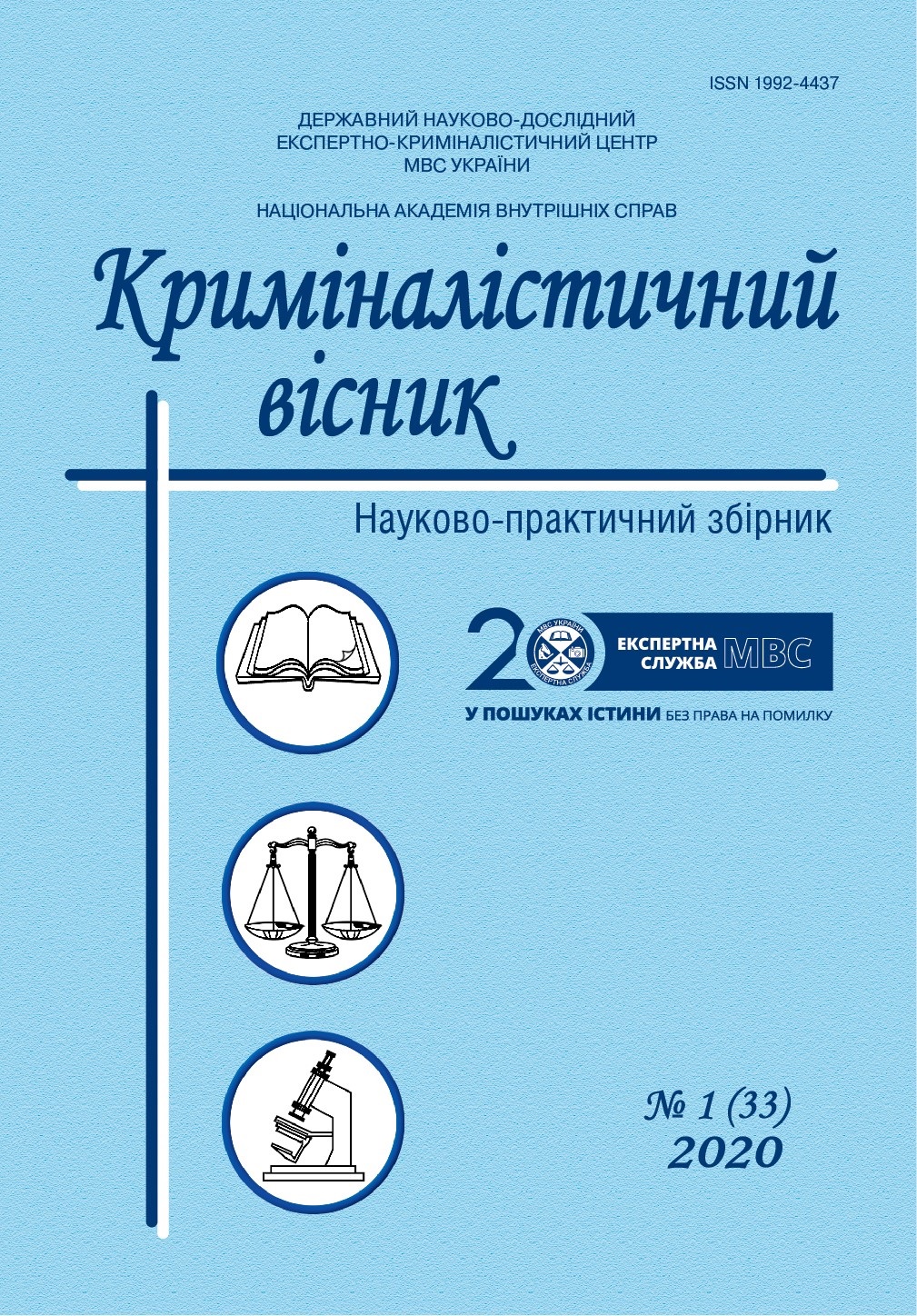THE ESSENCE OF DIGITAL INFORMATION AS A SOURCE OF EVIDENCE IN CRIMINAL PROCEEDINGS
DOI:
https://doi.org/10.37025/1992-4437/2020-33-1-37Keywords:
electronic (digital) information, electronic (digital) evidence, document, electronic document, procedural source of information, copy of information, data storage device, special knowledge.Abstract
The purpose of the article is to substantiate scientifically the theoretical foundations of legal regulation and modern practice of using electronic (digital) information as a source of evidence in criminal proceedings. Methodology. The reliability of the obtained results and conclusions is ensured by the application of the following methods: philosophical, general scientific and specific scientific. The essence of electronic (digital) evidence as a procedural source of evidence and their differences from other sources of evidence were revealed from the position of materialistic dialectics. The authors of the article concluded, by means of the formal logic methods (analysis, synthesis, analogy, deduction), that the concepts of terms «electronic information» and «digital information» in the Ukrainian legal field are synonymous. Using the methods of analogy and modeling, the authors demonstrate with real examples specific features of electronic (digital) evidence as independent sources of information about an offense and their interrelation with material objects – storage devices for such data. The possibilities of the comparative legal method made it possible to ascertain the fallacy of assigning all documents, created in electronic (digital) form to electronic, which is confirmed by examples of investigative and judicial practice, analyzed using statistical methods. Scientific novelty. Electronic evidence is considered as information in electronic obtained in the manner prescribed by law and is relevant to criminal proceedings. Proposals have been made to amend the Criminal Procedure Code of Ukraine to expand the range of procedural sources of evidence by introducing electronic (digital) evidence. Conclusions. The domestic criminal procedural legislation on procedural sources of evidence in criminal proceedings, as well as regulations on electronic (digital) information from the standpoint of belonging of electronic (digital) evidence to procedural sources of evidence were analyzed. Proposals for the legal consolidation of the above-mentioned understanding of electronic (digital) evidence in the criminal procedural law of Ukraine have been made. The necessity of improving the procedural procedure for obtaining electronic (digital) evidence, as well as determining qualification requirements for subjects – carriers of special knowledge involved in working with electronic evidence, clearly distinguishing their competence in terms of scope and form of application of special knowledge was proved. (digital) form,



